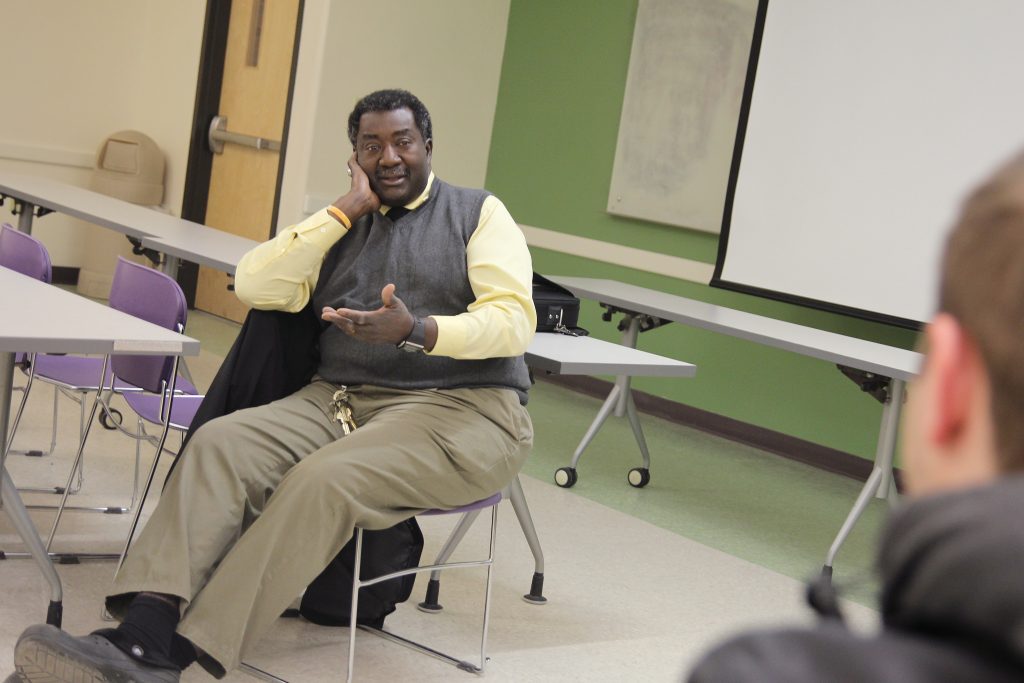
The Binghamton University Office of Student Conduct held a town hall meeting in Old University Union on Wednesday as part of its annual revision process for the Code of Student Conduct.
Each year the code is revised to meet the needs of the University community. According to Paul Stroud, director of the Office of Student Conduct, while his office has the responsibility of managing the process of revision, they rely on students and faculty for input on what needs to be changed.
“It’s a community project,” Stroud said. “It’s really a document that runs through Binghamton University.”
The office chose to facilitate a town hall meeting as a means of opening a discussion to faculty, staff and students across the University about the code of conduct. The meeting, however, is only one step in a long process.
According to Stroud, the Office of Student Conduct sent out the first pieces of information on this year’s revision in early November, and a final decision will be announced in April.
After receiving and compiling suggestions from the community, Student Conduct will send the information to the central administration of the University, including President Harvey Stenger and his cabinet, for a first round of review. Later, the proposed changes will be sent to the BU Council, which has the ultimate jurisdiction on what changes will be made to the code.
“If the Office of Student Conduct or I wanted to make a change to the code, it goes through the same process,” Stroud said. “I have to write it, I have to submit it and at the end of the day, the group that decides which changes are made is really the Binghamton University Council.”
A prominent revision to the code came in 2015, when new language regarding sexual assault was added to the policy. The change was a result of the SUNY-wide policy, “Enough is Enough,” or Complying with Education Law Article 129-B. The article mandated that all universities in New York state must establish a code of conduct, and within it define “affirmative consent” as “clear, informed, and voluntary.” Few changes have been made to the code since then.
Stroud acknowledged that many students have not read the code of conduct, despite its importance.
“I do a lot of presentations and usually I will ask, ‘How many of you have read the code of conduct? Raise your hands,’ and out of a room of 50 people you may see one or two hands, but I expect that,” Stroud said.
Ariel Kutcher, a senior majoring in English, said that many students will not read the entire code due to the idea that it will never affect them.
“While the code of conduct is extremely important — it’s something that affects every student — it doesn’t necessarily affect them directly, especially if they’re adhering to it,” Kutcher said. “Making any changes seems unnecessary to many students, however much it may affect them.”
Yitzhak Maurer, a sophomore triple-majoring in classics, Arabic and philosophy, politics and law, said that he believed any revisions to the code of conduct need to reflect the changing needs of the community.
“As the student population and the culture of the campus changes, it is important for the code of conduct to be edited, revised and ensured to be serving the present student body to the best of its ability,” Maurer said.
Another town hall meeting to continue the revision process will be held on Wednesday, Feb. 15 in UU-102 of Old University Union.


